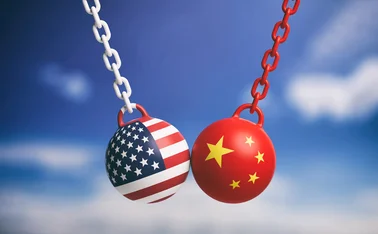
Renminbi will not be ready to join SDR in 2015: CentralBanking.com panel

In the first Central Banking Policy Forum, led by Central Banking Publications founder, Robert Pringle, panellists focused on the process of internationalising the renminbi.
In a spirited discussion, the panellists discussed the internationalisation and what significant developments they have been keeping track of.
"Internationalisation can mean different things to different people," said Gary Smith, global head of official institutions, BNP Paribas Group. "For me, the internationalisation of the renminbi is the significant closing of the gap between the foreign exchange transactions carried out in dollars and in renminbi."
Confident that China will "eventually be the biggest" economy in the world, Smith said nevertheless, "the renminbi is a long, long way short in terms of being a top player in international currency trading" at the moment.
Another panellist agreed there was work to be done. "When you have an economy that is the second biggest and heading towards the first you need to have that currency play a larger role in financial trade settlements than it does at the moment," said David Smart, global head of sovereign and supranational funds at Franklin Templeton Investments.
Smart said there were lessons to be learned from the past few years. "We all saw what happened in the financial crisis when the over-reliance on the dollar as a medium of settlement caused some very significant temporary problems in the international financial system," he said. "So the extent to which trade can be settled more in the renminbi is clearly in everyone's interest. But there is an awful long way to go. What we are seeing are the first steps towards that."
The third panellist, Jason Richardson, global head of emerging markets trading at Royal Bank of Scotland, stressed that during the last six months the internationalisation efforts "have been concentrated on the development of the offshore renminbi market in Hong Kong", where he said there had been a "dramatic" growth in deposits. He went on to note the development of products that allow investments to happen in renminbi, something that all the panellists agreed was an important step.
Rapid pace
The phenomenal speed of change so far has caught some by surprise.
"I think the market has been taken aback by the pace of change," said Richardson. "The mooted expectation at this point in time is that another offshore market like Hong Kong may be created; the most popular candidate is Singapore."
The topic of offshore markets was one that came up a number of times throughout the discussion. The idea of London, UK, becoming the next major trading hub was covered but, at the end of the day, participants concurred that another city in an Asian country was a more likely option.
Richardson stressed the importance of this process for the Chinese authorities. The offshore markets "allow the Chinese authorities to test the water somewhat on what an internationalised renminbi would trade like," he explained. "They get to understand the implications for financial markets, they get to test the appetite for a renminbi-denominated product and they get to understand a little bit about what a fully internationalised renminbi would look like in an international marketplace."
Yen comparison
Panellists took time to make interesting comparisons between the process unfolding in China and that which occurred some years ago in relation to the Japanese yen.
"Japan has been a number two economy in the world for some time," said Smart. "You could argue the yen should have become more internationalised than it has. The development of the financial markets in Japan has been a problem – it is only relatively recently that they have sorted out some of the technicalities of foreign investors buying Japanese government bonds. The key is to look towards the genuine internationalisation of the renminbi as being the development of the financial markets."
The aggressive actions by the Chinese authorities were commented on by the panellists, who saw this as the decisive difference between the processes in the two countries.
"You have to draw the conclusion that the intentions are quite different between these two countries' plans," said Smith. "The Chinese want the renminbi to become a reserve currency."
No matter what happens with regard to the offshore market, Richardson was certain Hong Kong would retain its role. "Hong Kong will always hold a special seat in this process, it was a natural choice for the first offshore market," he said.
Smith said 2015 would be an important year for the internationalisation process. "It is the expiry of the current five-year plan and also it's the next reweighting of the SDR [special drawing rights]," he said. "Both of these things are potentially interesting for Beijing. I'm not going to sit here and say the renminbi will meet all the requirements in time for it to be included in the next reweighting of the SDR, that won't happen. But there is the possibility that some sort of China solution will be found, to allow some form of participation in the next reweighting. Talking to policymakers at the International Monetary Fund, there is an interest to be inclusive, to embrace China and not push the country away."
Looking forward, the panellists found it hard to draw firm conclusions about the progression of the process.
"In a world where the renminbi market is fully internationalised, who knows really what that landscape would look like? There is a pent-up demand for Chinese assets, for sure," Richardson said.
Only users who have a paid subscription or are part of a corporate subscription are able to print or copy content.
To access these options, along with all other subscription benefits, please contact info@centralbanking.com or view our subscription options here: www.centralbanking.com/subscriptions
You are currently unable to print this content. Please contact info@centralbanking.com to find out more.
You are currently unable to copy this content. Please contact info@centralbanking.com to find out more.
Copyright Infopro Digital Limited. All rights reserved.
As outlined in our terms and conditions, https://www.infopro-digital.com/terms-and-conditions/subscriptions/ (point 2.4), printing is limited to a single copy.
If you would like to purchase additional rights please email info@centralbanking.com
Copyright Infopro Digital Limited. All rights reserved.
You may share this content using our article tools. As outlined in our terms and conditions, https://www.infopro-digital.com/terms-and-conditions/subscriptions/ (clause 2.4), an Authorised User may only make one copy of the materials for their own personal use. You must also comply with the restrictions in clause 2.5.
If you would like to purchase additional rights please email info@centralbanking.com







